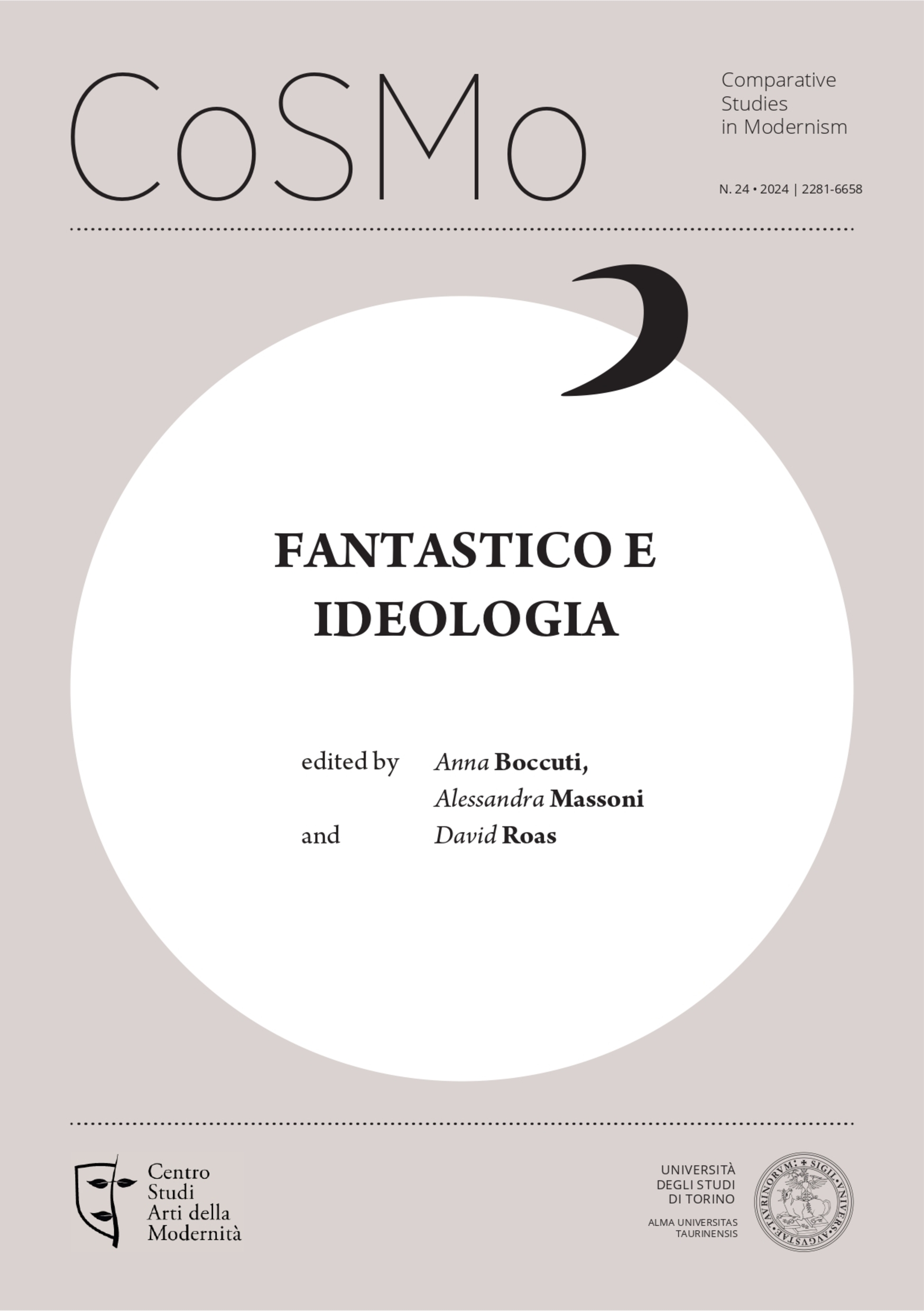“Si va e si torna insieme”
Pensar (más allá de) la catástrofe con “Plop” de R. Pinedo y “Tejer la oscuridad” de E. Monge
DOI:
https://doi.org/10.13135/2281-6658/10692Parole chiave:
Post-apocalyptic Narratives, Dystopian Narratives, Rafael Pinedo, Emiliano Monge, Anti-evolutionismAbstract
The hypothesis of the present work is that contemporary dystopian and (post)apocalyptic imaginaries, beyond their good intentions, can become, unconsciously and paradoxically, instances of acceptance of the status quo and of the dominant model. Based on a reading of two recent Latin American novels (Rafael Pinedo’s Plop and Emiliano Monge's Tejer la oscuridad), a critique of this imaginary is proposed by the analysis of the implicit cultural assumptions of this discourse. It is suggested that the representation of a post-apocalyptic society, based on the idea of a return to a primordial and natural barbarism of human beings, has clear origins in Western thought and that – in order to make the critical power of the eco-dystopian discourse effective – it would be useful to radically revise our imagery in a truly anti-evolutionary and anti-progressive perspective.
Downloads
##submission.downloads##
Pubblicato
Fascicolo
Sezione
Licenza
Gli autori mantengono i diritti sulla loro opera e cedono alla rivista il diritto di prima pubblicazione dell'opera, contemporaneamente licenziata sotto una Licenza Creative Commons - Attribuzione che permette ad altri di condividere l'opera indicando la paternità intellettuale e la prima pubblicazione su questa rivista.






